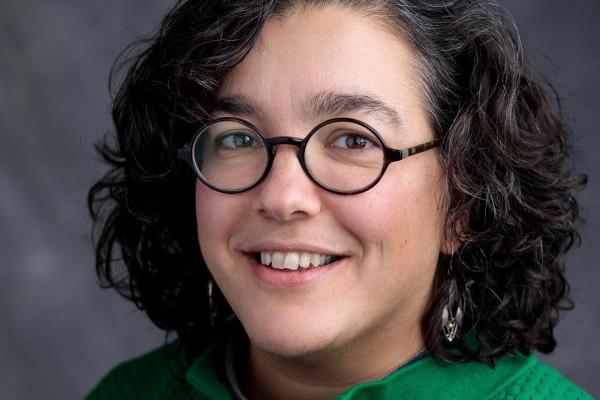
You are cordially invited!
Na'ama Rokem
(The University of Chicago)
Associate Professor, Comparative Literature & NELC;
Chair, Department of Comparative Literature
Translation and Solidarity:
Arieh Ludwig Strauss
between Jerusalem and Asia in the early 1950s
January 23, 2024
4:30-6:00pm
Lazenby 034
Born in Aachen in 1892, Ludwig Strauss had a lively career as a poet, translator, and scholar in Weimar Germany. He participated in different (and seemingly disparate) cultural and intellectual circles. On the one hand, he became close to Martin Buber (who would become his father-in-law when he married Eva Buber in 1926), participated avidly in the Jewish cultural Renaissance in inter-war Germany, and contributed to the discourse of Cultural Zionism. On the other hand, he was also close to culturally conservative circles and interested in the idea of a German cultural nationalism, associated for example with the journal Kunstwart, where he had participated in the debate about the so-called “German-Jewish Parnassus.” After a stint as a dramaturg at the Schauspielhaus in Düsseldorf, Strauss completed his PhD with a dissertation on Hölderlin and Schelling in 1929, and his Habilitation on the concept of “Gemeinschaft” in Hölderlin’s work and, went to teach at the Technical University in Aachen. The rise of Nazism made the complex position that Strauss had occupied – straddling German and Jewish nationalisms as cultural projects – untenable. As the persecution of Jews intensified and Strauss could no longer hold his teaching position, the family – Ludwig, Eva, and their two sons – left for Palestine, where Strauss held different teaching positions until his death in 1953. During his final years, Strauss became increasingly committed to a socialist-left form of cultural Zionism coupled with political bi-nationalism, a position that drew on a utopian strand that was present in his Buberian Zionism all along and connected him to the Shomer ha-tzair movement and its newspaper, Al ha-mishmar. During these same years, Strauss began a career as a Hebrew poet, publishing in that language under the name Arieh Ludwig Strauss. This paper focuses on two poems written during the intensely bilingual phase of Strauss’s career in the years preceding his death in 1953: a poem written in celebration of the Asia-Pacific Peace Conference which took place in Beijing in 1952, which was published in both German and Hebrew during Strauss’s life, and a poem denouncing the rape and murder of a young Palestinian girl by Israeli soldiers in the immediate aftermath of the war of 1948, which was published in Hebrew a few weeks after his death. My aim is to map the connections between Strauss’s political vision and his interest in solidarity (from trans-Asia to Palestine), on the one hand, and his practices of bilingual writing and self-translation, on the other.
_______________________
Professor Rokem is a scholar of Modern Hebrew and German-Jewish literature who is particularly interested in translation, self-translation, and language mixing.
Her current project –Dispatches in Translation: A Network of German-Hebrew Letters – maps a network of correspondences that cross between the two languages in different ways. With chapters on Franz Kafka, Else Lasker-Schüler, Ludwig Strauss, Leah Goldberg, Hannah Arendt, Paul Celan, Yehuda Amichai, Tuvia Rübner, and Dan Pagis, the book offers a new perspective on the central role of multilingualism in the formation of modern Jewish literature, and on the poetics of self-translation. I am one of the co-editors of Volume IV of the Critical Edition of the Complete Works of Hannah Arendt (Essays and Short Writings) and have organized a series of events and workshops that deal with Arendt’s thinking about Jewish questions.
Prof. Rokem has also been involved in a number of collaborative projects, including co-taught courses on bilingualism in linguistics, literary studies, and creative writing, and the Neubauer project The Quest for Modern Language: Between the Mediterranean and the Black Sea. Most recently, she has worked with colleagues in Chicago Studies, the Department of Race, Diaspora, and Indigeneity, the History Department, and with a community organization - The Bronzeville Historical Society - on a project that uses the Oak Woods Cemetery in Woodlawn as a site for teaching, programming, and researching the history of the South Side of Chicago, with a particular interest in the complexly intertwined histories of African Americans and Jews. The project has received funding from the NEH, the Mellon Foundation, and the Women’s Board at the University of Chicago.
______________
Rokem’s first book, Prosaic Conditions: Heinrich Heine and Spaces of Zionist Literature (Northwestern University Press, 2013) uses the case of the reception and translation of the works of German-Jewish poet Heinrich Heine to argue that prose - as a figure of thought, a mode and a medium - played an instrumental role in the literary foundations of the Zionist revolution.
